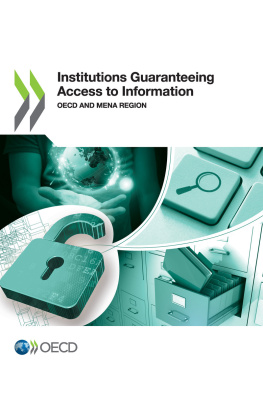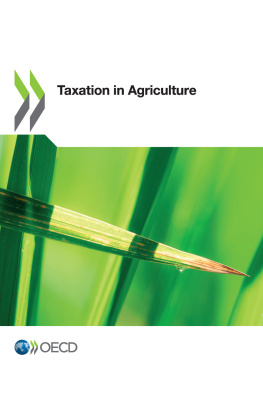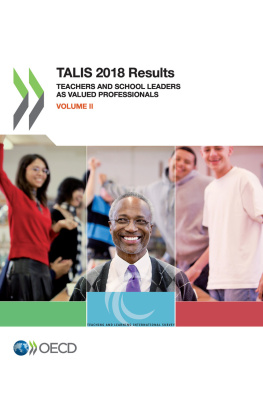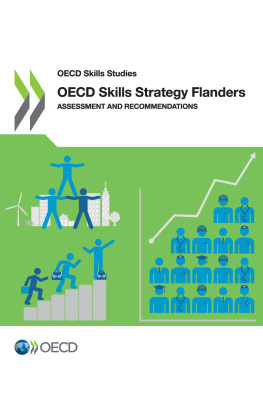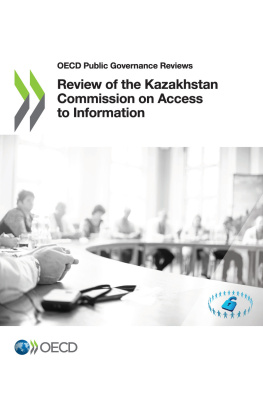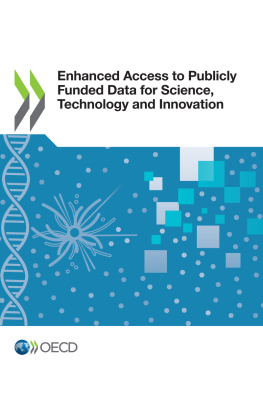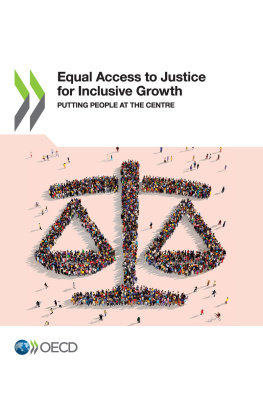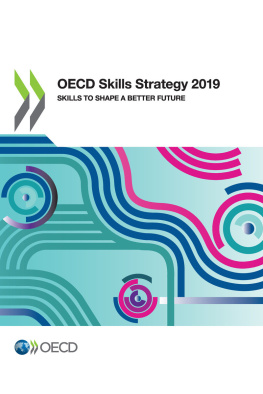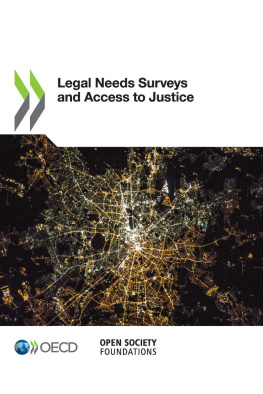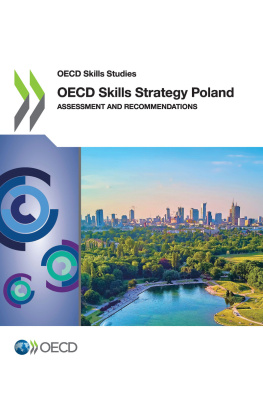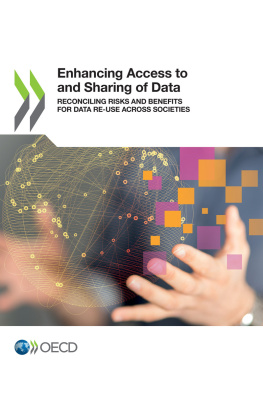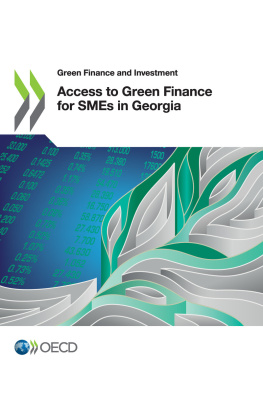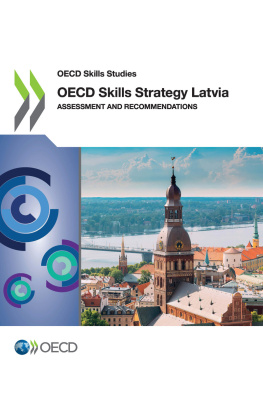OECD - Institutions Guaranteeing Access to Information
Here you can read online OECD - Institutions Guaranteeing Access to Information full text of the book (entire story) in english for free. Download pdf and epub, get meaning, cover and reviews about this ebook. year: 2019, publisher: OECD Publishing, genre: Politics. Description of the work, (preface) as well as reviews are available. Best literature library LitArk.com created for fans of good reading and offers a wide selection of genres:
Romance novel
Science fiction
Adventure
Detective
Science
History
Home and family
Prose
Art
Politics
Computer
Non-fiction
Religion
Business
Children
Humor
Choose a favorite category and find really read worthwhile books. Enjoy immersion in the world of imagination, feel the emotions of the characters or learn something new for yourself, make an fascinating discovery.
Institutions Guaranteeing Access to Information: summary, description and annotation
We offer to read an annotation, description, summary or preface (depends on what the author of the book "Institutions Guaranteeing Access to Information" wrote himself). If you haven't found the necessary information about the book — write in the comments, we will try to find it.
OECD: author's other books
Who wrote Institutions Guaranteeing Access to Information? Find out the surname, the name of the author of the book and a list of all author's works by series.
Institutions Guaranteeing Access to Information — read online for free the complete book (whole text) full work
Below is the text of the book, divided by pages. System saving the place of the last page read, allows you to conveniently read the book "Institutions Guaranteeing Access to Information" online for free, without having to search again every time where you left off. Put a bookmark, and you can go to the page where you finished reading at any time.
Font size:
Interval:
Bookmark:
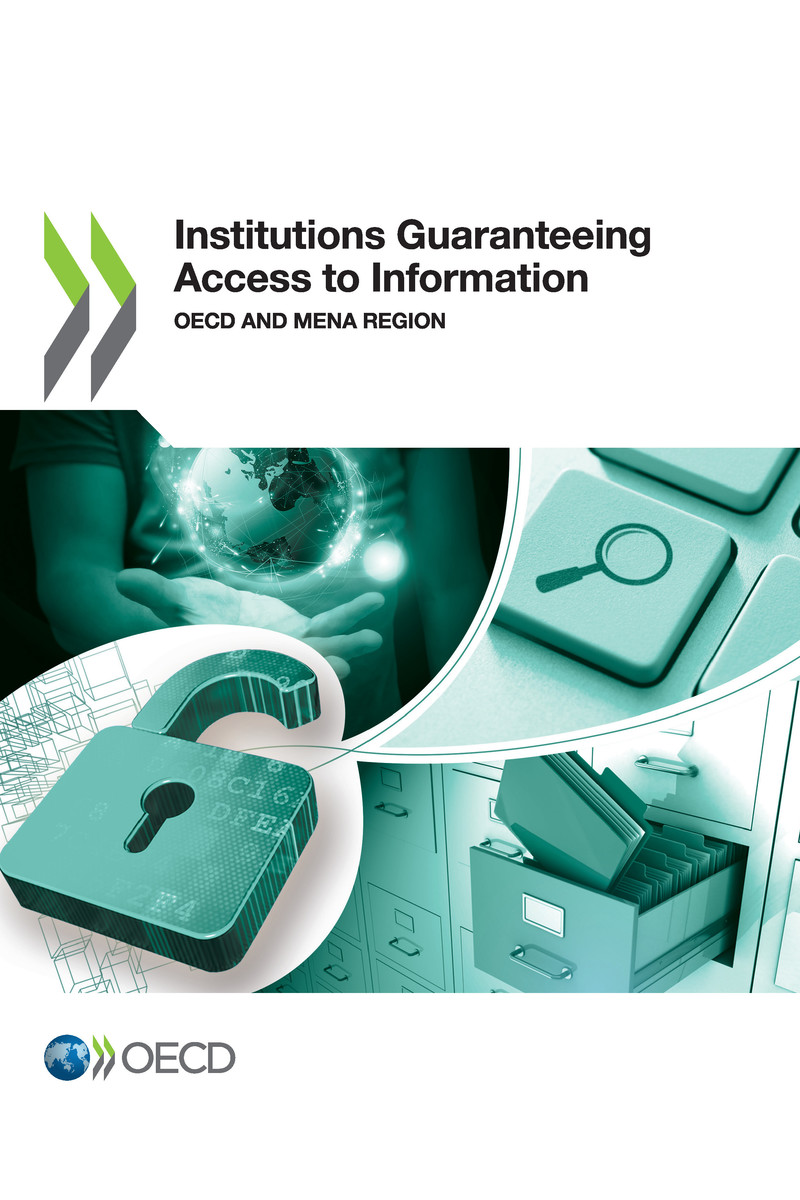
OECD (2019), Institutions Guaranteeing Access to Information: OECD and MENA Region , OECD Publishing, Paris, https://doi.org/10.1787/e6d58b52-en .
The right to access information is an essential element of open government, and should be considered in the framework of ongoing public governance reforms and a transparent and participatory government. The right to access information is an effective lever for inclusive growth. It increases citizens trust in their public institutions, as well as their participation in the elaboration of public policies. It also helps to offer public services that meet a societys needs. Ultimately, the right to access information helps improve public governance, fight corruption, and involve civil society in the development of innovative approaches.
OECD member countries put great importance on developing and respecting the right to information. They have passed extensive legislation in this area. For more than 15 years, the OECD has been working on projects to promote open government and, in collaboration with member countries and partners, on designing and implementing legal, regulatory, and institutional frameworks that favour transparency, stakeholder participation, and access to information.
However, in the MENA region, the right to access information has only developed recently. Although Jordan passed a law on access to information as early as in 2007, it was not until the 2011 revolutions that legislation evolved significantly in Tunisia, Lebanon, and Morocco. The actual implementation of access to information remains nonetheless complicated in MENA region countries.
With the aim of developing and making the right to access information more effective, OECD member countries, and the four aforementioned MENA region countries, have decided to create institutions guaranteeing the right to access information (IGAI). These institutions play a decisive role in the individual and collective promotion, application, and development of this right.
It is in this context that the OECD Secretariat became specifically interested in IGAIs and elaborated this report as part of the MENA-OECD Governance Programme and the OECD Open Government Project. Both initiatives have supported MENA countries since 2012 in their development and implementation of public policies that favour transparency, stakeholder participation, and accountability, in consultation with citizens and civil society.
This report examines in particular the role of IGAIs in the proactive disclosure of information and in hearing appeals of refusals to communicate information. The first part addresses IGAIs in OECD member countries based on specific examples, while the second part assesses their situation in Jordan, Tunisia, Lebanon, and Morocco.
This study forms part of the work conducted by the OECDs Public Governance Committee to increase transparency and accountability for inclusive growth. It is based on the OECD Recommendation on Open Government, which defines a set of criteria to help countries design and implement open government programmes that re-establish the trust of their citizens in public policy and strengthen inclusive growth.
The OECD Secretariat would like to express its gratitude to all of its partners who helped make the publication of this report possible.
First of all, the OECD would like to thank the directors of the public administrations and institutions that guarantee access to information in Jordan, Lebanon, Morocco, and Tunisia, who took the time to answer questions and who actively participated in the working meetings. It would like to extend its thanks in particular to:
The Office of the Minister of Government Reform in Lebanon
The Chair and members of the National Authority for Access to Information, the E-Government Unit, and the Office of Administrative Reforms and Prospects in Tunisia
The Ministry of the Reform of the Administration and Public Service in Morocco
The Office of Public and Media Relations at the Council for Information in Jordan
The OECD would also like to thank the representatives of civil society who participated in the information sharing meetings and who provided their perspectives and proposals, especially Article 19-Tunisia and Open Knowledge Foundation-Germany.
Lastly, the OECD expresses its gratitude to the public officials of the OECD member countries who acted as peers during the seminars, especially Ms. Christelle Guichard, Ms. Concepcin Campos, and Mr. Julian Prior.
This report was prepared by the OECD Directorate for Public Governance, directed by Marcos Bontouri. It forms part of the Open Government Project conducted by the Governance Reviews and Partnerships Division, which is directed by Martin Forst. It was developed under the strategic direction of Alessandro Bellantoni, and written by Amira Tlili and Richard Martinez. It has also benefited from the contributions of Katharina Zuegel, Lamia Benhoummane and Guillaume Biganzoli. Roxana Glavanov provided editorial support and prepared the manuscript for publication. Claudio Cambon translated the manuscript into English.
This study was conducted as part of the mandate to promote open government reforms in the MENA region, received by the OECD by the G7 Deauville Partnership with Arab countries in transition.
The OECD would like to thank the Middle East Partnership Initiative (MEPI) of the United States for its financial support.
Font size:
Interval:
Bookmark:
Similar books «Institutions Guaranteeing Access to Information»
Look at similar books to Institutions Guaranteeing Access to Information. We have selected literature similar in name and meaning in the hope of providing readers with more options to find new, interesting, not yet read works.
Discussion, reviews of the book Institutions Guaranteeing Access to Information and just readers' own opinions. Leave your comments, write what you think about the work, its meaning or the main characters. Specify what exactly you liked and what you didn't like, and why you think so.

